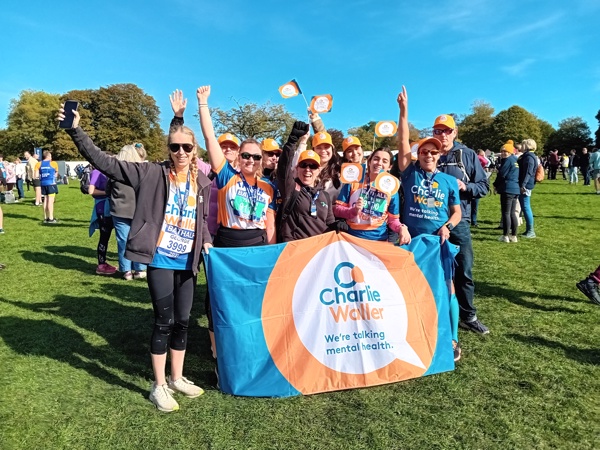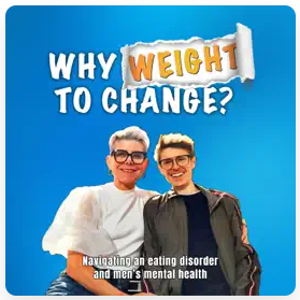New year’s resolutions
January 10 2025

As we come to the end of the first full week of 2025, many new year’s resolutions will already have fallen by the wayside. In fact, some estimates say that around 25% of resolutions are broken in the first week; others that 80% will have gone awry by the end of February. It might be helpful not only to remind yourself of these numbers but to be mindful of the children and young people around you. They might be placing themselves under significant pressure to keep up with others’ reports of the new revision schedule they’re nailing, the ‘work-outs’ they’ve completed or the various homemade soups they’ve made!
Does not keeping resolutions really matter though? Clearly it’s not in the least unusual, so should we even be setting new year’s resolutions in the first place? Or are there ways of moving towards our goals which are better for our mental wellbeing?
‘All or nothing’ thinking
Resolutions are often unhelpful because they’re binary (there are only two options): either we achieve them or we don’t. There’s a risk of thinking that if we ‘fail’ at them, then we are a ‘failure’, and this can have a negative effect on our self-esteem and self-confidence.
This binary thinking often comes into play around resolutions about food, many of which are being promoted across the various media channels we are all exposed to. Within many global north cultures, foods are often labelled ‘good’ (for example, salad) or ‘bad’ (chocolate, for instance). This can be an artificial and unhelpful distinction, particularly for anyone experiencing difficulties around food, weight and shape. There’s also a risk of such a black and white mentality, fuelling perfectionist thinking, which research tells us can link to a range of mental health difficulties.
A healthier way?
Rather than buying into this all or nothing thinking which can sometimes be experienced as ‘shaming’ of certain behaviours or choices, it can instead be helpful to promote messages of self-care, self-compassion, and connectedness with others as our priorities for 2025.
By modelling these qualities as important, we are showing to those around us - particularly children and young people - that for us, increasing the quality time we spend with one another, or finding new things we enjoy doing, are more important that whether we ‘succeed’ at a potentially short-term goal around being a ‘new me’. If we can, we also want to share the message that our ‘current me’ is pretty fantastic and not in need of significant overhaul!

Putting self-compassion at the centre of your desire to form new habits can be really helpful: you still get to reap the benefits but without having to do constant battle with your inner critic!
The ‘experiment’ approach
If people are using January to start changes that better their mental and physical health, then encouragement and engagement as a supporter can be helpful; we wouldn’t want any concerns about resolutions to be experienced as disbelief in someone’s ability to succeed.
However, to remove pressure, framing behavioural changes as an experiment, in which we collect information about the effects, can be helpful. For example, “I am going to try and spend some additional time outside each week with friends” and having conversations about what impact that change has had and if you, or the person who has set that goal, wants to keep doing it based on how they feel after making that change.
It is also helpful to frame things as efforts rather that absolute statements: rather than “I will have a coffee with my friends every week”, say “I will try to get together with my friends when I feel I can.”
Rather than “I will never work through my lunchbreak eating at my desk”, say “I will try and nurture my wellbeing at work by taking a lunchbreak away from my desk.”
Framing our efforts in this way can take away the fear of failure and help us to feel encouraged rather than threatened.
Balance, not binary
As adults, we are often modelling to our children, or to children in our care, in more ways than we know. Starting with self-compassion and experimental goals ourselves can be a nice way of showing an alternative to the media emphasis on resolutions.
It can be great to have goals or motivations that develop us in some way, but important to keep good mental health in mind too and remember balance, rather than binary, is key.

Send us your ideas
We’d love to hear about your ideas for gentle self-motivation. Do share them with us on our socials!
Related
Popular
Upcoming event

Join us for the Bath Half Marathon to support young people and their mental health!

The Charlie Waller Trust
The Charlie Waller Trust is a registered charity in England and Wales 1109984. A company limited by guarantee. Registered company in England and Wales 5447902. Registered address: The Charlie Waller Trust, First Floor, 23 Kingfisher Court, Newbury, Berkshire, RG14 5SJ.
Copyright © 2025 The Charlie Waller Trust. All rights reserved.





